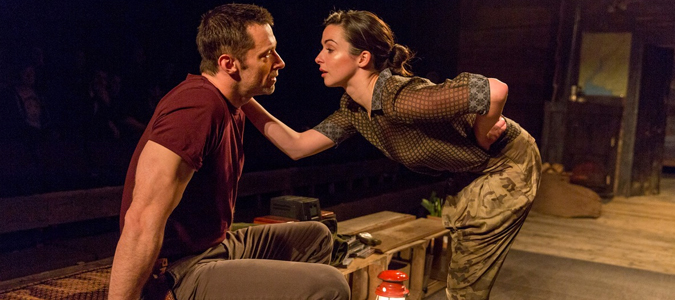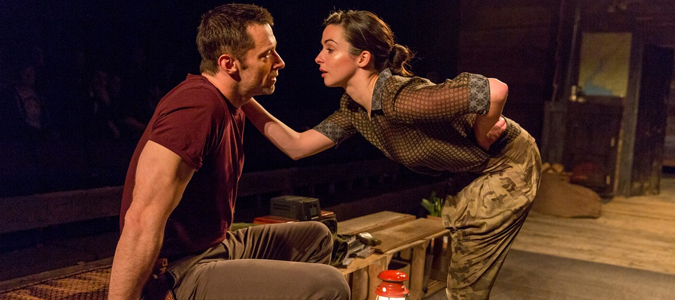

The River
Opening Night: November 16, 2014
Closing: February 8, 2015
Theater: Circle in the Square
The nature of the play and its inherent mystery means that the finer details of its plot and characters should be kept a secret. We can, however, reveal the following: The Man (Hugh Jackman) has whisked his new lover away to a remote woodland cabin where he wants to go trout fishing in the darkness of the new moon. As the play evolves we become less sure about his intentions… or of the nature of his relationship with those he entertains at his cabin.
BUY TICKETSREAD THE REVIEWS:
November 16, 2014
Hugh Jackman isn’t giving anything away these days. And reticence, it turns out, becomes him. Who knew? In Jez Butterworth’s The River, the poetic tease of a drama that opened Sunday night at the Circle in the Square Theater, Mr. Jackman conveys an impression of mightily self-contained silence, even when he’s talking like Wordsworth on a bender. And in banking his fires so compellingly, he ascends with assurance to a new level as a stage actor. I make no comparable claims for Mr. Butterworth’s short and elliptical play, previously staged in London at the Royal Court Theater and his first since the mighty “Jerusalem” K.O.’d New York in 2011. That heaving portrait of a belief-starved Britain was an audacious symphony of words, ideas and characters you hated to love. The River is conducted in a more minor key, and is also a more minor effort. Like “Jerusalem,” this cryptic tale of a man and a woman (or women — maybe) magnifies the seemingly ordinary to mythic proportions, while honorably refusing to stoop to easy explanations. The director Ian Rickson, who brought such clarity and vitality to “Jerusalem,” lends the same care and polish to the far more shadowy River. This artfully staged production, set in a rural fishing cabin that is one man’s insular kingdom, is guaranteed to hold your attention. But you’re likely to leave it feeling hungry, and not just because it aims to mystify. Be grateful, then, that any pangs of emptiness are counterbalanced by the intriguing heft of Mr. Jackman’s strangely radiant opacity.
READ THE REVIEWNovember 16, 2014
What with The Last Ship, Disgraced, and seminude Bradley Cooper all on the boards this fall, Broadway is more testosterony than usual, full of scruff and blowtorches, beefcake and wife-beating. But nothing beats Jez Butterworth’s new play The River for manliness: It’s got Hugh Jackman, Wolverine himself, romancing some ladies and gutting a trout. Whether manliness is next to goodliness is a different question, one the play itself — riveting, troubling, thought-provoking, unsatisfying — struggles to embody and never really answers. Not that it needs to; the damn thing is already stuffed to the gills for most of its run, with even the $95 “riverbank” benches and the $30 standing room spots at capacity the night I attended. By and large, that’s a good thing, because Jackman, who alternates between camp and murk in his Broadway appearances, is nothing if not ambitious. In choosing to star in The River, a West End hit two years ago, he is promoting the work of a Major Serious Playwright, bringing it to an audience that might be just as happy if he brought them Moose Murders. So all credit to Jackman for making a difficult, highbrow work — the kind that namechecks Ted Hughes, T.S. Eliot, and Yeats but does not name its characters — commercially viable.
READ THE REVIEWNovember 16, 2014
If you’re casting the role of a passionate fisherman who’s an irresistible lure himself, Hugh Jackman makes ideal bait. That goes for audiences of The River, at Circle in the Square, where Wolverine is reeling in capacity crowds and giving a striking performance. In this slight but twisty drama by Jez Butterworth, Jackman’s character is unnamed — he’s called The Man, for universality’s sake. The story’s about the mysteries and darkness of the human heart — and the art and emptiness of serial seduction. The appearance of a black stone the precise size and shape of a human ticker makes that point crystal clear. Otherwise, Butterworth — who debuted on Broadway in 2011 with the sprawling epic Jerusalem — leaves lots of unanswered questions. Interpretations are up for grabs. In a remote cabin on a moonless night, The Man, who looks like a Men’s Journal model in waders and angling gear, convinces his new girlfriend to fish for trout. Then she goes missing. The gone girl returns, but she’s not the same. To reveal more would batter Butterworth’s theatrical conceit.
READ THE REVIEWNovember 16, 2014
The peculiar configuration of the stage at Circle in the Square creates a sense of close-encounter intimacy that is making Hugh Jackman’s fans very happy. So long as they silence their cell phones and don’t try to snap a photo (after a fervent and apparently necessary pre-curtain request made by the understudy), they deserve that bit of joy. Aside from the charismatic star’s intense performance as a lovesick fisherman who is given to poetic laments over the fish (and the woman) who slipped away from him, just about everything else about Jez Butterworth’s strange chamber piece, The River, is a downer. It takes a while for that bad news to sink in, because helmer Ian Rickson’s atmospheric staging of the play (a transfer from the Royal Court) creates an initially entrancing air of mystery. The open-sided setting designed by Ultz depicts the rustic cabin where a character designated The Man (Jackman) has taken a character designated The Woman (Cush Jumbo) for a romantic night of trout fishing.
READ THE REVIEWNovember 16, 2014
Jez Butterworth’s elliptical chamber drama is a mystery play in the purest sense: no answers, no closure. As Hugh Jackman (identified only as the Man) interacts with Cush Jumbo (the Woman) and Laura Donnelly (the Other Woman), you may worry over the gals’ well-being: Is Jackman playing a serial womanizer—or something more sinister? Next moment, your heart goes out to the lonely guy, connected more to the stream outside his cabin than his appealing houseguests. Then there’s the fact that the ladies switch places midscene with the Man, making the action seem both continuous and fractured. Crime thriller? Erotic memoir? Ghost story? Yes and no. Wriggling slickly through all these categories, The River is a metaphysical piece, despite visceral business (the Man guts and cooks a trout). The language often grows heightened, with arialike monologues about water, fish, the weather and furious lovemaking (“It was beyond hunger, beyond need—like this giant rolling fiery roaring ball with me in the middle of it”).
READ THE REVIEW






















